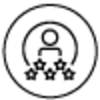Evolving the understanding of disability and accessibility

December 3 is International Day of Persons with Disabilities a U.N.-designated day of recognition and awareness of one of the largest equity-deserving groups in Canada and globally. This is a day to promote an understanding of inequities faced by disabled people and to mobilize support for the dignity, rights, and well-being of disabled people. It is also a time to raise awareness of the necessity and benefits of including persons with disabilities in every aspect of political, social, economic, and cultural life.
Disability – Wise practices in disability language
Disability is not a negative word. Euphemisms substituted for disability like “differently-abled,” “physically challenged,” “special needs” or “handi-capable” diminish and erase disability. Having a disability is not something to be ashamed of. Refraining from saying disability reinforces the stigma surrounding disability, rather than embracing it as a valued aspect of diversity.
Disability includes visible and non-visible disabilities — physical, sensory, and learning disabilities as well as mental health, neurodivergence, brain injuries and medical conditions, to name a few.
Disabled individuals may prefer to be referred to using person-first or identity-first language. It is important to ask which is preferred and follow how people refer to themselves. For example, if referring to someone who is hard of hearing, person-first language would be: ‘Person with a disability’ or ‘a person who is deaf/hard of hearing’. Identity-first language would be: ‘Disabled Person’ or ‘a Deaf Person.’
Because language changes over time, it is important to stay informed about the language preferences of disabled communities.
Accessibility - Understanding ableism, universal design and disability justice
Disabled communities have led efforts, research, education, and activism to break down structural and attitudinal barriers that have contributed to systems that perpetuate ableism. These systems resulted in the marginalization and discrimination of disabled persons. Ableism is a system that places value on people's bodies and minds based on societally constructed ideas of normalcy, intelligence, excellence and productivity (T.L Lewis). Ableism can be in the form of physical barriers in the environment, unadaptable technology, not complying with Accessibility for Ontarians with Disabilities Act (AODA) requirements and/or failing to incorporate accessibility in designing spaces, programming and services.
For people with disabilities to be able to fully participate in everyday life, accessibility must be a priority. Accessibility involves incorporating universal design. That means the design and composition of an environment can be accessed, understood and used to the greatest extent possible by all people, regardless of ability. This can be done by asking:
- Can people of all abilities safely access all essential spaces? (Washrooms, transit, parking, eating spaces, program and service areas, exits, etc.)
- Are safety and emergency protocols developed in consideration of the needs of people of all abilities?
- Is this space/program conducive to a quality experience by people of all abilities? Has neurodivergence been considered?
It's important to note that disabled communities are not a monolith, so when implementing accessibility and anti-ableist approaches, intersectionality must be considered. This is the goal of disability justice. Disability justice is a social justice movement which focuses on examining disability and ableism as they relate to other forms of oppression and identity such as race, class and gender. The full experience and identity of the disabled person must be considered when ensuring that the individual has access and feels included. When adaptation and accessibility requests are made, they should be led by the disabled individual, based on their needs.
Disability and accessibility at the Y
Disability and accessibility are a priority for the YMCA and one of the pillars of our Diversity, Equity, Inclusion and Belonging Strategy. The goals within this focus area include adopting and promoting universal design principles and advancing a strength-based and intersectional approach to disability. This means moving away from thinking that an accommodation can adequately address all barriers to participation and instead, using an equity-minded approach to make our programs, services and spaces accessible for all abilities.
Please visit the resources below to learn more about disability, accessibility and how to dismantle ableism through acts of disability justice.
RESOURCES
Language
Glossary via Invisible Disability Project: Words Matter
Video: Person First or Identity First Language
Podcast via Disabled as Folk: A to Z of Disability Vocabulary(52-minutes, on YouTube)
Universal design and inclusion
Guide via CCDI: Canadian Centre for Diversity and Inclusion’s Commemoration Guide
Universal Design: Definition and 7 Principles
Video: Let's Raise the Roof A Social Model of Disability(4-minutes)
Invisible disabilities
Zine by Haley Zilberberg: Why I Started Being Real About My Disability with Others
Reading list, Toronto Public Library: The Buzz about Invisible Disabilities (Books)
Ableism and stigma
Definitions via The Human Rights Commission: Ableism, Negative Attitudes, Stereotypes and Stigma.
Forbes article: Words Matter, and it’s time to explore the meaning of ‘Ableism.’
Youth
Disable the Difference podcast: What is it like having a child with a disability?(1 hour, 10 min)
United Nations fact sheet: Youth with Disabilities
Mentor Canada report: The Mentoring Effect: Youth Experiencing Disabilities











